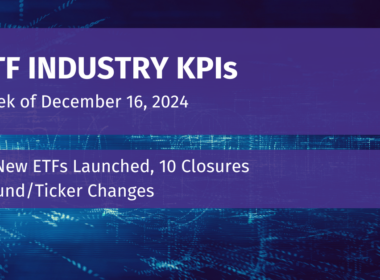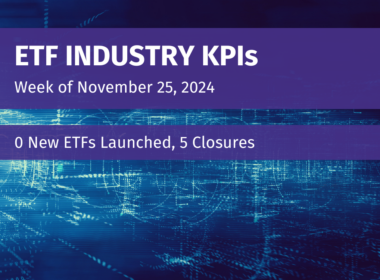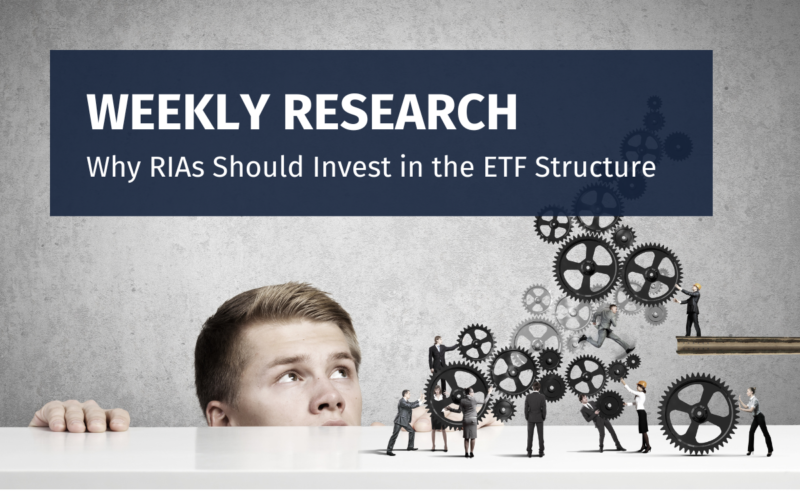Everybody remembers Bernie Madoff, who “managed” a hedge fund that turned out to be a $65 billion Ponzi scheme. He was finally arrested in 2008, but some had their suspicions about his business practices long before then. One of them was Erin Arvedlund, who 7 years earlier, wrote an article for Barron’s questioning Madoff’s legitimacy. She has since written two books, including one discussing Madoff titled “Too Good to Be True: The Rise and Fall of Bernie Madoff”. With a new mini-series about Madoff now on Netflix, she joined the ETF Think Tank to recount her experiences.
The timing is quite convenient because the series dropped right around the same time that FTX was collapsing. Arvedlund sees a lot of parallels between the two. In both cases, almost no one saw it coming. It appears as if Sam Bankman-Fried was just sloshing money around and moving it simply from one place to another, a practice that Madoff did as well. There were trades made, but no one really knows who the real owners of the accounts were. Madoff happened nearly 15 years ago, but many of the same things are happening today.
Part of the reason we’re seeing these occurrences happening now, such as FTX, could be a result of the pandemic. Sitting at home with stimulus cash in hand caused a brand-new crop of retail investors flooding into the market. You had too many millennials jumping into the process, trading on their phones and investing for the first time. There was also an influx of money that transitioned from sports betting to stock betting. It is likely a combination of a lack of knowledge and a lack of sufficient regulation.
There were early signs that Madoff’s business wasn’t legitimate. Arvedlund explains that in 1999, a financial analyst reviewed some of Madoff’s numbers and reached out to the SEC with the belief that it was mathematically impossible to generate the kinds of gains that Madoff was claiming. After the SEC failed to follow up, Arvedlund started doing her own investigating and found that several big financial firms, including Salomon Brothers, wanted nothing to do with him. Although some on Wall Street spoke highly of him, a lot of the big banks didn’t want to work with him believing that his numbers weren’t real.
Arvedlund’s article came out in 2001 questioning Madoff’s returns, but as previously noted, the SEC never came for him. The fact that Madoff claimed another big return, when the market cratered in October 2008, finally raised some red flags. He received billions in redemption requests with no possible way to meet those requests , effectively bringing him down, finally.
Arvedlund wondered if this may simply be a recurring cycle in the financial world. Every 10-15 years, there’s a recession and every 10-15 years, there’s a batch of new investors that take on too much risk, get in over their heads, and end up losing big. She notes that these new folks need to learn to treat it like investing and not gambling or a game.
Arvedlund says that the SEC has improved over time and has gotten pretty good. She says that Gary Gensler at the SEC recently had an open conference call to discuss unregulated shorting, which makes her think that they have a handle with what’s going on with FTX.
Other key takeaways:
- Why aren’t fiduciaries more accountable? Why aren’t some of them going to jail? Arvedlund isn’t sure. Sequoia gave FTX $200 million and had never even visited the office.
- How is it that many hedge funds seemed to be implementing naked short selling trading strategies on crypto on Exchanges? How exactly can that be allowed or monitored within the philosophy of decentralized markets?
- As a reporter, Arvedlund says she needs to be active on as many platforms as possible, including social media, because they’re trying to reach as many people as they can. She says Twitter doesn’t seem as open or as fun as it used to be.
You can watch a replay of this virtual happy hour on our YouTube channel here. While there, subscribe to our channel to stay up to date on our latest content.
Disclosure
All investments involve risk, including possible loss of principal.
The material provided here is for informational purposes only and should not be considered an individualized recommendation or personalized investment advice. The investment strategies mentioned here may not be suitable for everyone. Each investor needs to review an investment strategy for his or her own particular situation before making any investment decision.
All expressions of opinion are subject to change without notice in reaction to shifting market conditions. Data contained herein from third party providers is obtained from what are considered reliable sources. However, its accuracy, completeness or reliability cannot be guaranteed.
Examples provided are for illustrative purposes only and not intended to be reflective of results you can expect to achieve.
The value of investments and the income from them can go down as well as up and investors may not get back the amounts originally invested, and can be affected by changes in interest rates, in exchange rates, general market conditions, political, social and economic developments and other variable factors. Investment involves risks including but not limited to, possible delays in payments and loss of income or capital. Neither Toroso nor any of its affiliates guarantees any rate of return or the return of capital invested. This commentary material is available for informational purposes only and nothing herein constitutes an offer to sell or a solicitation of an offer to buy any security and nothing herein should be construed as such. All investment strategies and investments involve risk of loss, including the possible loss of all amounts invested, and nothing herein should be construed as a guarantee of any specific outcome or profit. While we have gathered the information presented herein from sources that we believe to be reliable, we cannot guarantee the accuracy or completeness of the information presented and the information presented should not be relied upon as such. Any opinions expressed herein are our opinions and are current only as of the date of distribution, and are subject to change without notice. We disclaim any obligation to provide revised opinions in the event of changed circumstances.
The information in this material is confidential and proprietary and may not be used other than by the intended user. Neither Toroso or its affiliates or any of their officers or employees of Toroso accepts any liability whatsoever for any loss arising from any use of this material or its contents. This material may not be reproduced, distributed or published without prior written permission from Toroso. Distribution of this material may be restricted in certain jurisdictions. Any persons coming into possession of this material should seek advice for details of and observe such restrictions (if any).












